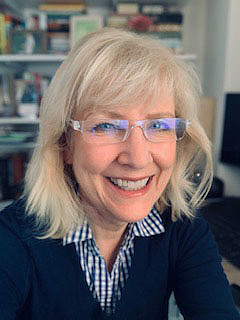
Carol McCluer, singer and actor with the Aesthetic Realism Theatre Company, writes:
Before I studied Aesthetic Realism, though I didn’t have trouble getting men to make a lot of me, my relationships didn’t succeed, and I felt so empty and loathing of myself. Then, in Aesthetic Realism consultations I learned that the purpose of love is to like the world through another person. I heard questions like the following: “The opposite of using a person to like the world is to use that person in some way to glorify oneself. What do you think you’ve loved more, Ms. McCluer—men, or your effect on them? Is the power you want the power to conquer a man or the power to see?”
A poem I love by Eli Siegel is humorously and deeply on this subject: “Is It Me, Darling, or Somebody Else, God Knows Who?—A Love Poem.” It’s about the desire—attained by the speaker in the poem—to have a man flatter and adore her above all else. In issue 987 of The Right of Aesthetic Realism to Be Known, Chairman of Education Ellen Reiss writes about the music of this poem:
It has the breathless triumph of a woman whom a man has made more important than the whole world. But Eli Siegel is the person who so mercifully understood the pain a woman feels even as she is triumphant—because she knows she has not shown her true self to the man, nor has she tried to see it. The sinking disappointment that accompanies her victory is in this poem’s music too, as the lines both eagerly swell and piteously droop.
Studying Aesthetic Realism has made it possible for me really to love a man, Kevin Fennell, my husband, and also to feel that it is I, the real me, who is being loved.
Is It Me, Darling, or Somebody Else,
God Knows Who?—A Love Poem
When you tell me that you never met anyone like me,
And that my blonde hair shines in the sun,
And that you’d rather see me than forty nephews,
And that an hour with me is triumph enough for a whole life,
And that when you talk with me you don’t know where you are you’re so happy,
And that you’d rather press my hand than be in a panel for a discussion of the world with learned professors,—
Darling, are you sure it’s me,
Or somebody else you’ve invented, God knows who—
Not me; just me?